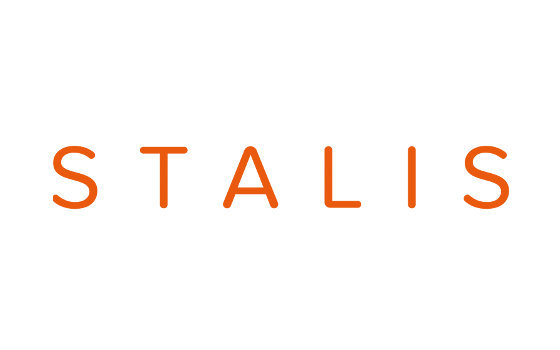 Data sharing ambitions set out in newly published sustainability and transformation plans (STPs) have been given a boost by a new strategic partnership between data management specialist Stalis and Italy's largest health IT company, Dedalus. The new partnership looks to make vital patient information, currently stored on dozens or even hundreds of legacy IT systems, accessible for care professionals working in different NHS and public sector organisations.
Data sharing ambitions set out in newly published sustainability and transformation plans (STPs) have been given a boost by a new strategic partnership between data management specialist Stalis and Italy's largest health IT company, Dedalus. The new partnership looks to make vital patient information, currently stored on dozens or even hundreds of legacy IT systems, accessible for care professionals working in different NHS and public sector organisations.
Specifically targeted to help achieve digital ambitions in STPs, which rely on safe and appropriate data sharing between health and social care organisations, the partnership will use open standards, to allow key clinical documents to be shared at scale across entire health economies covering thousands, if not millions of people.
For example, discharge summaries and transfer of care forms, typically stored as PDFs, will be searchable and retrievable by authorised professionals, from a secure data repository. Information will also be processed to become machine readable meaning that vital patient data can support clinical decision support.
Stalis' CareInform system, already in use in the NHS to integrate care records, will be complemented by Dedalus' X-Value interoperability platform to enable clinicians and care professionals to share clinical documents from multiple care organisations using an open standard called IHE XDS.
Andrew Meiner, managing director at Stalis, said: "The move to new models of care places a fresh emphasis on the role of interoperable patient records across health and social care. Organisations on both sides of the fence are accountable for this data, in terms of how it is managed and shared to support patient care."
In a landmark review commissioned by health secretary Jeremy Hunt, US digital expert Professor Robert Wachter, recently called for the development and enforcement of standards, along with penalties for suppliers, trusts, GPs, and others who stand in the way of appropriate data sharing.
Meiner added: "Digitising patient records brings multiple clinical and efficiency benefits, but there is still a challenge ahead in terms of how the NHS maximises its use of data to ensure it is reliable and safe. Reflecting on our experience of working with many NHS organisations, we see data standards such as IHE XDS providing the much needed infrastructure to share rich data sets to enable integrated care."
Dedalus brings an international pedigree of enabling data exchange across health economies and has on average 300,000 daily users of its solutions. The partnership will combine its global IT experience and capabilities with Stalis’ intrinsic knowledge of the NHS and social care market, providing a proposition that supports the interoperability objectives STPs and the digital local roadmaps.
NHS Digital warned in November 2016 about the real implications of the absence of interoperability between systems for social care staff. It noted that staff were having to manually input data, did not have real-time access to information and were spending less time with patients as a result.
The CareInform technology works by collecting and distributing administrative and clinical data, such as reports and workflow items to different health and social care providers' IT systems. It provides a complete long-term view of a patient's encounters, health conditions and treatments, helping to improve planning and coordination for service delivery.
Giorgio Moretti, CEO, Dedalus: "The pressure to deliver integrated care to better serve the needs of patients is increasing day-by-day. Meaningful information exchange is of paramount importance to share data and ultimately help to improve clinical outcomes and manage efficiency and costs. Stalis is well-known and respected in the UK, and we liked their team's approach to transforming, migrating and managing data in the NHS, along with their vision to drive the use of open data standards.
Dedalus' X-Value platform matches patient IDs from different care settings, effectively merging them together to ensure that patients can be accurately and quickly identified at any point in their care journey. The company’s technology has been successfully used in China, where its interoperability platform integrates hospital systems with 1,300 health centres in the Daqing region serving three million citizens, and in the U.S.A. where it enables clinical integration within physician networks.
The partnership's services are available through G-Cloud and GPSoC as well as the London Procurement Partnership Clinical Digital Information Systems (CDIS) Framework after Stalis was awarded places on all frameworks, to help save health and social care providers time and cost in procurement processes.
About Stalis
Stalis are specialists in data migration and integrated care record solutions with over 30 years' experience of managing NHS data to create high-quality, integrated records that act as the foundation for safe and efficient care. Stalis' solutions support customers looking to deliver integrated care services, migrate smoothly to new systems, improve the quality and accuracy of their data and enhance their business intelligence and reporting capabilities. Customers in both trusts and clinical commissioning groups turn to Stalis because of its proven methodology and functionally rich software tools, healthcare-only focus and strong track record in successful project delivery.
About Dedalus
Dedalus Healthcare Systems Group is a leading provider of healthcare IT software in Europe and Italy's largest by revenue and market share. Founded in 1990, with over 30 Offices in Europe, Asia, Africa and the Americas. Dedalus offers a wide range of healthcare IT solutions, with over 200 implementations globally, around 1,700 employees and a turnover of more than 160 M€.
The company's X-Value interoperability platform assists healthcare providers in collecting and sharing patient information, documents, and processes across a region or among multiple institutions. Providers are able to efficiently manage healthcare information while reducing risk, improving security and drastically increasing quality control.